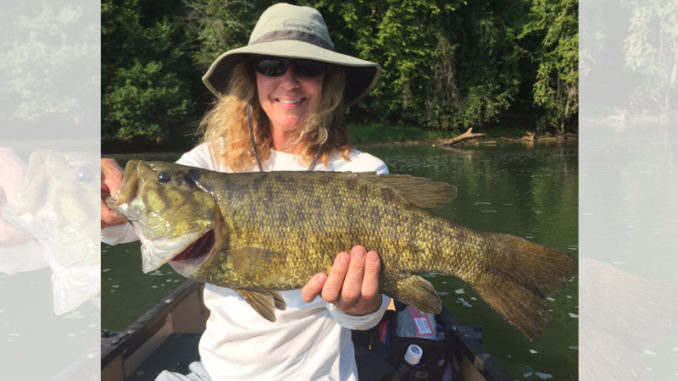
Sometimes, this is an angler’s only option
From the time we first hooked our first bream, we’ve all heard the coaching from our fishing mentors and pals. And among the words of encouragement, “don’t give him any slack,” and “keep the line tight,” are often bantered about, and with good reason. But as with most rules in life, this one has an exception.
Giving a fish any slack while you’re fighting it gives the creature a chance to get a head of steam going on his next pull against you. And that’s often all it takes for a fish to snap your line, wrap you around a stump, or simply pull the hook free from its mouth.
So why would you ever give a fish any slack? Mike McSwain of Broad River Smallmouth sees situations where giving a fish some slack is often all an angler can do. The Broad River is full of stumps, rocks, and weeds. And it’s also full of feisty smallmouth with the goal of breaking every bit of tackle they can get ahold of.
In many stretches of rivers across the Carolinas, rocks are a staple. And it’s not always individual rocks scattered about. In some cases, it’s large sections of solid rock that stretch for days. And some of those have hollowed out bottoms that give bass a place to hide with a roof over their heads. This is when many anglers break off. But this is also where anglers who understand when to give slack, can catch some prize fish.
This tactic isn’t only for river anglers
When you’re fighting a fish and it’s coming to you, then running away from you, then coming to you again as you reel, then all of a sudden you seem to have buried your hook into a boulder and no movement occurs no matter how much you reel, this is often when that fish has found a little hideaway such as the many that exist on the Broad River.
McSwain has seen this with clients of his many times. Sometimes he simply wades to the spot, reaches under the rock, and pulls out the fish. It’s all a matter of getting the right angle. But other times, it’s not feasible to do that. In these cases, McSwain said all an angler can do is give the fish some slack. Then wait for the fish to make a move.
“As long as he feels pressure on the line, he’s going to sit tight. Once you give him some slack, he’ll often think everything’s okay. He’ll swim out of his hole thinking nothing is wrong. That’s when you get back to fighting him,” he said.
Offshore reef anglers often use this same tactic
And McSwain’s tactic isn’t just for river anglers. This is also something that many offshore reef anglers practice when they hook a big grouper that runs back into its hole in the reef before the angler is able to winch him up. Capt. Dave Tilley of SatwaterCentral.com said it’s helped many of his anglers over the years.
“Ideally you want to reel that fish away from the reef as fast as you can. But we all know things don’t always work out the way you want them to. But when you feel that fish dive and then all of a sudden, it feels like dead weight on the line, it’s time to open the bail and give it some slack. It doesn’t always work. But it’s the only thing that will work in this situation. Just be ready when the fish starts moving again, and once you come tight this time, reel, reel, reel,” Tilley said.
Click here to read more about smallmouth fishing on the Broad River.



